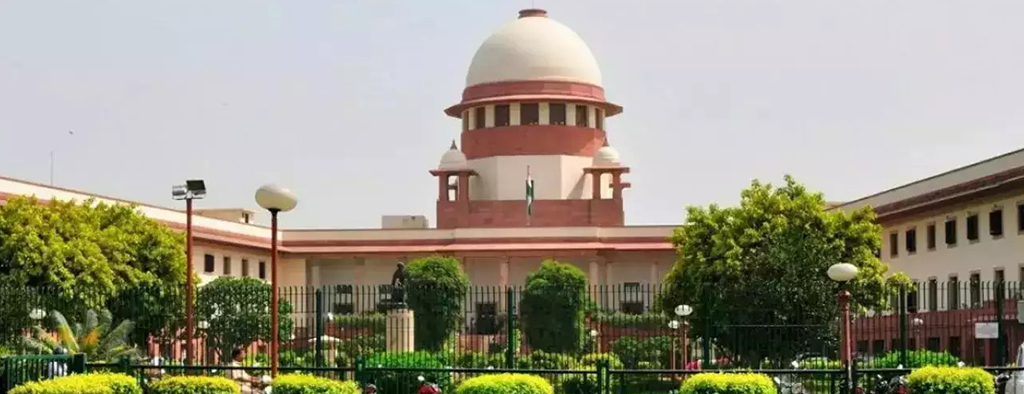The Supreme Court recently noted that if a deed’s earlier and later clauses are repugnant to one another—that is, if a later clause completely eliminates the obligation that the earlier clause created—then the earlier clause should take precedence and the later clause should be rejected. The Bench of Justices Vikram Nath and Ahsanuddin Amanullah remarked that while interpreting a Deed or Contract, the earlier clause(s) would have precedence over the latter clause(s), setting aside the decisions of the High Court and Trial Court.
The Supreme Court reached the aforementioned conclusion when reading the provisions of the Power of Attorney (“PoA”), which was executed in favour of the individuals from whom the appellant bought the land on August 24, 2000, by the landowners or principals. The landowners claimed that the PoA holders, including the appellant, had misused the PoA and committed crimes by misappropriating the property, failing to render the account(s), and fabricating the Sale Deed because it was signed by the Principals of the PoA-holder without their signatures.
The appellant filed a petition with the High Court to have the said FIR quashed in opposition to the filing of a FIR under Sections 467 (Forgery of Valuable Security, Will, etc.), 468 (Forgery for the Purpose of Cheating), 469 (Forgery for the Purpose of Harming Reputation), and 471 (Using as Genuine a Fake Document) of the Indian Penal Code, 1860, for which the trial has begun. Nonetheless, the High Court dismissed the petitioner. In opposition to the aforementioned dismissal, the appellant filed a criminal appeal with the Supreme Court.
The PoA holders disputed the landowners’ allegation, arguing that clause 15 gave them the right to submit the sale deed(s) or other documents signed by the landowners/principals for registration, admit their execution in front of the District Registrar, the Sub-Registrar, or any other officer with the authority to register the aforementioned deeds and documents, as applicable, and retrieve them after registration. The court believed that it was necessary to interpret the combined interpretation of the previously removed clauses both rationally and coherently.
“As such, our endeavour would, in the first instance, necessarily require us to render all three effective and none otiose. In order to do so, this Court would test as to whether all the three clauses can independently be given effect to and still not be in conflict with the other clauses.”

The court reconciled the three clauses in the current case by interpreting the PoA’s terms harmoniously. Since clause 15 is an addition to and not a modification of clauses 3 and 11 of the PoA, the court documents that there are no inconsistencies between those clauses and clause 15.
“The reason to so hold is that besides the contingencies where the PoA holder had been authorized to execute any type of deed and receive consideration and get registration done, which included sale of movable/immovable property on behalf of the landowners/principals, the land owners/principals had also retained the authority that if a Sale Deed was/had been signed by them, the very same PoA holder was also authorized to present it for registration and admit to execution before the authority concerned.”
The court held that if the landowners/principals had executed a Sale Deed in favour of any third party before the PoA-holder executed and registered the Sale Deed for the property in question, and if the PoA-holder had not presented the said Sale Deed and had instead proceeded to execute and register a different or subsequent Sale Deed in favour of the appellant, then the situation would be completely different.
“If in a deed an earlier clause is followed by a later clause which destroys altogether the obligation created by the earlier clause, the later clause is to be rejected as repugnant and the earlier clause prevails… But if the later clause does not destroy but only qualifies the earlier, then the two are to be read together and effect is to be given to the intention of the parties as disclosed by the deed as a whole. …”, (per Lord Wrenbury in Forbes v. Git) Taking note of the aforesaid position of law the court observed that “if there arises a conflict between Clauses 3 and 11, on the one hand, and Clause 15 on the other, we would have to conclude that Clauses 3 and 11 would prevail over Clause 15 as when the same cannot be reconciled, the earlier clause(s) would prevail over the later clause(s), when construing a Deed or a Contract.”
After concluding that no criminal case was made out and that the appellant purchaser of the land had no involvement in the PoA’s execution or in any wrongdoing by the PoA holder against the landowners or principals, the court granted relief to the appellant purchaser from the criminal proceedings. In view of the decision in Vishnu Kumar Shukla v. State of Uttar Pradesh, wherein the court emphasised the responsibility of the High Court to shield litigants against vexatious and undesired prosecution, this Court granted protection to the appellant purchase against unwanted criminal prosecution and the possibility of an unnecessary trial.
In light of this, the court granted the appellant’s request and struck down the formal complaint filed at the Dumraon Police Station in Buxar, Bihar, together with the trial court’s order of cognizance and all of its ramifications.


